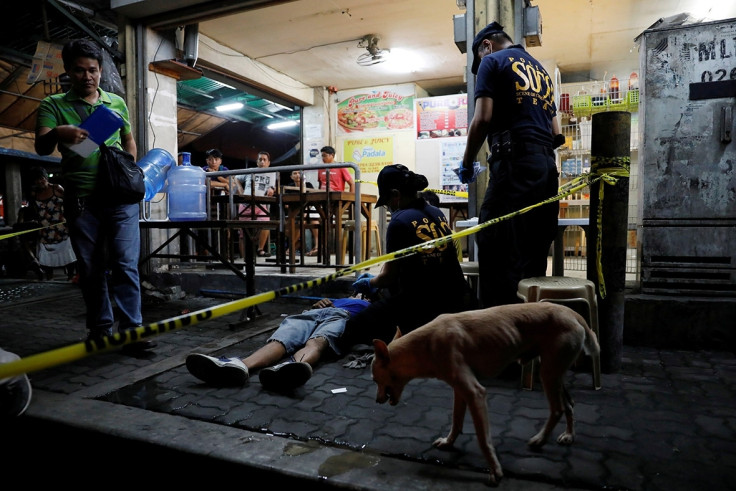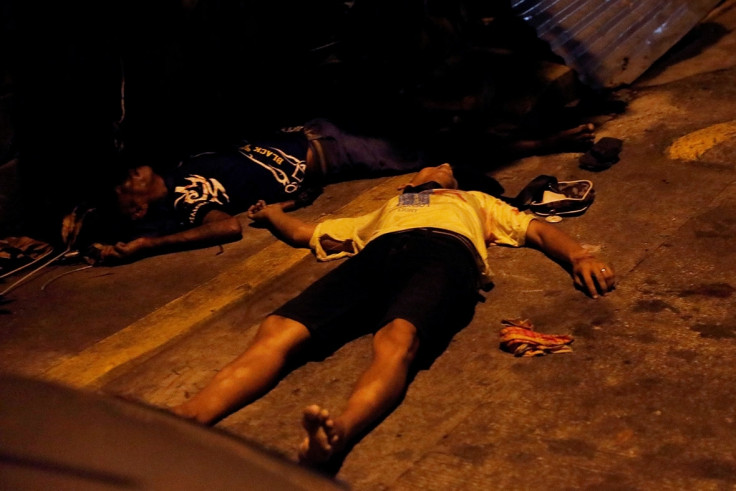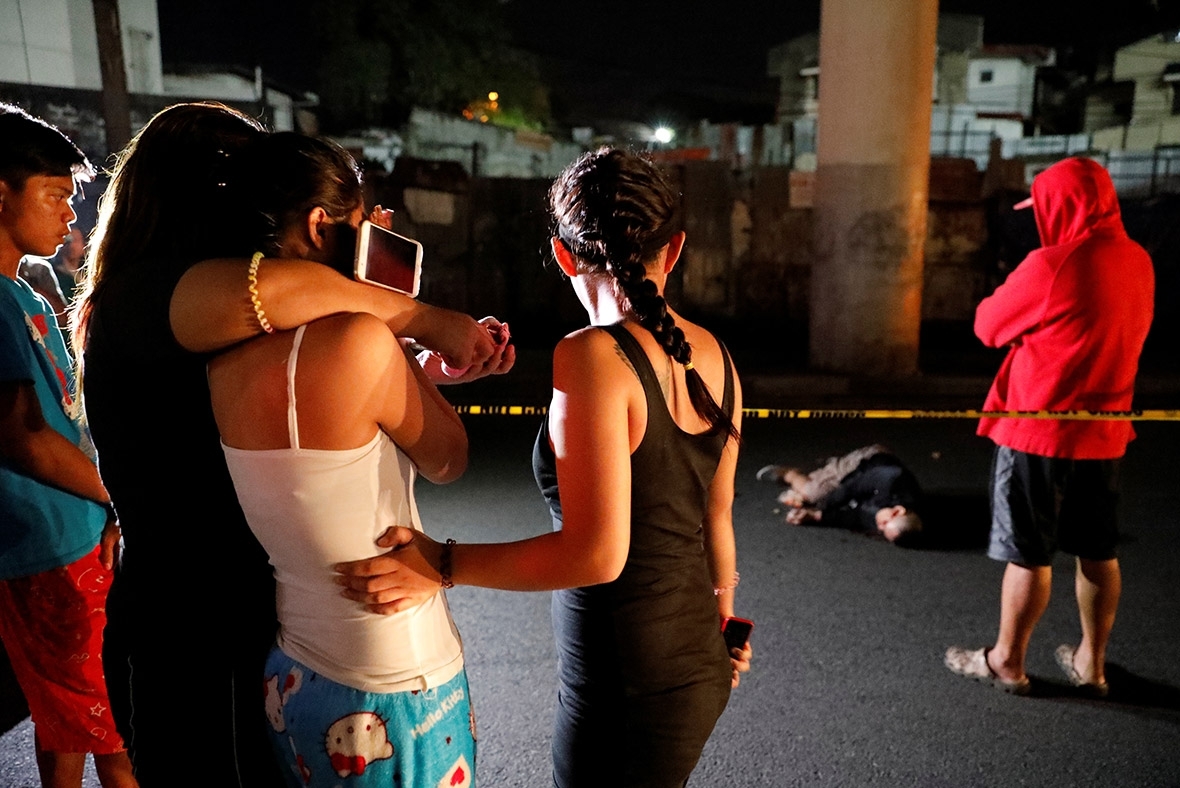Philippines police kill 60 people in three days in Duterte's deadly war on drugs [Graphic images]
The 60 deaths mark the deadliest period of the crackdown that has killed thousands since Duterte took office over a year ago.
At least 60 people have been shot dead by police in the Philippines over the last three days as President Rodrigo Duterte's war on drugs intensifies. Police said at least 28 people were killed during gun battles in Manila on Wednesday night (16 August), with another 32 killed in police raids in Bulacan province on Monday.
The 60 deaths mark the deadliest period of the crackdown that has killed thousands and caused international alarm, since Duterte took office over a year ago.

Colonel Erwin Margarejo, spokesman for Manila police, described the Manila raids as "one-time, big-time" operations, the same term used by police in Bulacan, who said the victims died because they chose to put up a fight. The term has been used by Philippines police to describe a coordinated anti-crime drive in crime-prone districts, usually slums or low-income neighbourhoods, often with additional police deployed.


According to police reports, a total of 223 people were arrested in Manila and Bulacan. The reports said police launched 84 operations in the two regions, the majority of which were "buy-bust" stings, in which plain-clothes officers attempt to trap drug dealers. There were no reports of any police casualties.
It was not immediately clear what was behind the step-up in the number of coordinated police operations this week. Manila police chief Oscar Albayalde said there had been no instruction to change or increase the scale and scope of the anti-drugs campaign.
On Wednesday, Duterte indicated the latest operations had his blessing. He said it was good that 32 criminals had been killed in Bulacan, then added: "Let's kill another 32 every day. Maybe we can reduce what ails this country." On Thursday, he said he would not just pardon police officers who killed drug offenders during the anti-narcotics campaign, but also promote them.
Chito Gascon, the chairman of the Philippine Commission on Human Rights, said Duterte's comments emboldened police "to do their worst." "The police are essentially free to do what they will because they are almost guaranteed that they will not be investigated or charged," Gascon said.
"The president did not instruct me to kill and kill," national police chief Ronald dela Rosa told reporters. "I also don't have any instructions to my men to kill and kill. But the instruction coming from the president is very clear that our war on drugs is unrelenting. Those who were killed fought back."






Senior Superintendent Romeo M Caramat Jr said the operations in Bulacan resulted in the consification of more than 200 grams of methamphetamine, 786 grams of marijuana, assorted firearms, grenades and ammunition.

Duterte criticised human rights groups for getting in the way of his anti-drugs campaign and said police should shoot them if they obstructed justice, a remark the New York-based Human Rights Watch said puts activists "in grave danger". Its deputy Asia director, Phelim Kine, described the comments as "like painting a target on the backs of courageous people working to protect the rights and upholding the dignity of all Filipinos."
Although the violence has been criticised by much of the international community, Filipinos largely support the campaign and domestic opposition to it has been muted. Duterte unleashed his crackdown the day he took office on June 30 last year after a convincing win in an election in which he campaigned heavily on a promise to use deadly force to wipe out crime and drugs.
The exact number of people killed during the war on drugs is difficult to quantify, with no independent statistics available and police providing comprehensive data only for deaths during anti-drugs operations, where official accounts typically say suspects resisted arrest.
From the start of the drugs war to the end of July, police said over 3,400 people were killed in their operations. Police said about 2,100 deaths among some 13,500 murders over the same period were drugs-related, attributed to turf wars, informants being silenced, or vigilantes killing drug users. Most of the people killed have been drug users or small-time dealers in poor communities.
© Copyright IBTimes 2025. All rights reserved.























